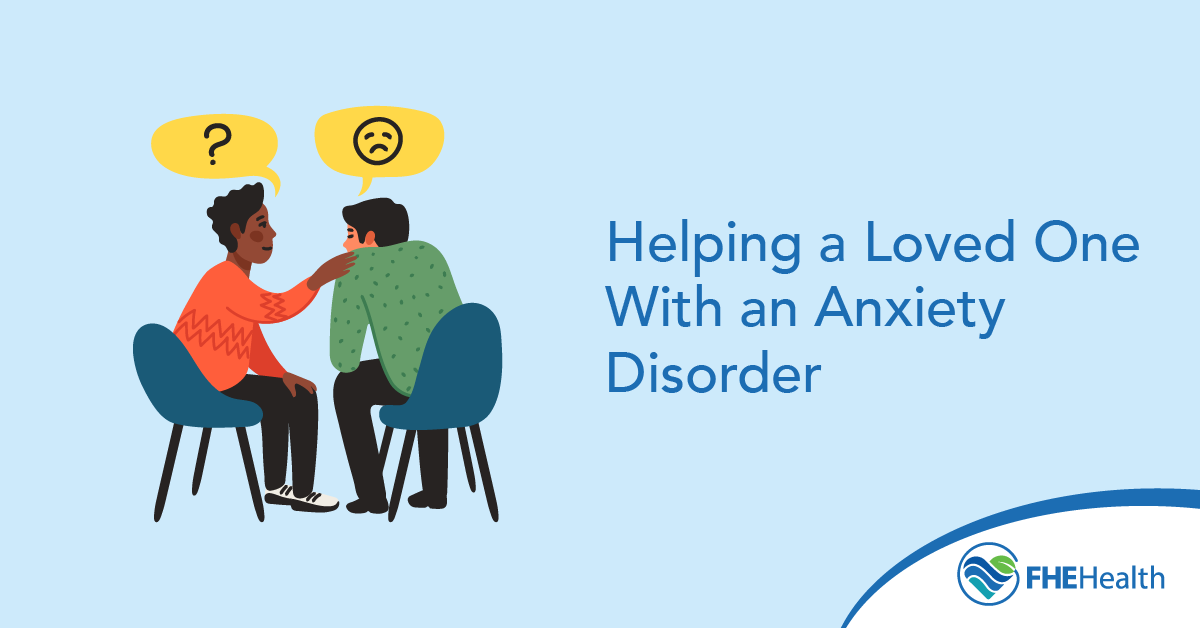
Anxiety is a problem as big as its symptoms, affecting hundreds of thousands worldwide regardless of age, nationality or gender. Thankfully, certain scientific studies, along with guidance from mental health professionals, can offer insights into how to help anxiety.
In a 2024 study published in the National Library of Medicine, approximately 16.1% of adolescents suffered from some form of anxiety disorder. Additionally, a 2024 National Health Statistics report found that 18.2% of adults also suffered from an anxiety disorder. Together, these numbers tell us that a significant number of our friends, family and loved ones are struggling with life-altering levels of worry and fear.
Understanding Anxiety Disorders and Their Impact
Anxiety isn’t simply a medical term for the type of normal worries most of us face in daily life. It’s a disorder that takes those worries to an unhealthy level, turning a habitual double-check of a door lock into a stressful, all-day mental movie of burglars breaking in. It’s a collection of negative ideas and thoughts that someone struggles to put aside or ignore, often building into irrational, overblown fears. Imagine trying to go about your daily tasks with a fire alarm constantly sounding in your ear. It’s something you can’t tune out and a signal your body always interprets as an emergency.
Knowing how to help anxiety in the most meaningful way starts with understanding that it isn’t a choice for someone diagnosed with the disorder. While they’d undoubtedly love to just stop worrying, their brain and body are essentially forcing them to worry against their will.
Recognizing the Signs a Loved One Is Struggling
Determining how to help someone with anxiety starts with observation. General anxiety and acute anxiety will have different telltale signs, though they can often mimic one another. The Mayo Clinic notes that sometimes anxiety will manifest as physical symptoms, such as trembling, sweating or difficulty breathing, though these all lean towards acute anxiety or even an impending panic attack. Additional nonphysical red flags can include being overly distracted or forgetful, having a high startle reflex or struggling to sleep.
How to Help Anxiety: Dos and Don’ts
One of the most harmful reactions to someone struggling with anxiety, particularly if they’ve confided in you, is minimization. Minimizing statements can sound like:
- You’re overreacting — it’s not a big deal.
- Stop making a scene, you’re embarrassing yourself.
- You need to calm down.
- Everyone gets scared; you just have to get over it.
Instead, try using collaborative and supportive language to give your loved one a safe space to regulate themselves. By gently taking the lead and offering reassurance, you’re helping them help themselves.
- I’m here for you, I’m not going anywhere.
- I can see you’re upset right now. Let’s fix that together.
- I’m going to do/get/find that for you.
- Let’s practice slow breathing together.
Bear in mind that asking a person in an acute anxiety episode to make decisions can make the situation worse. Rather than giving them A-or-B choices, make a logical choice for them and guide them through it. These are some straightforward ways to assist if you’re not sure how to help someone having a panic attack. They’re usually stuck in fight-or-flight mode and can’t make decisions, so guidance offers them a way out of the cycle.
Practical Ways to Offer Emotional and Daily Support
Checking in with your loved one and letting them discuss their emotions judgment-free is an excellent way to support their well-being. Discussing potentially anxiety-triggering events well beforehand, as well as brainstorming some preparation steps together, may help make the event less intimidating. Talk about the objects or actions that help with their anxiety when they aren’t currently in crisis. This will help both of you feel more prepared for emergencies.
Encouraging Professional Treatment Without Pressure
Getting professional mental health assistance with a medical provider is an important step for overall well-being. However, for some people, reaching out or getting diagnosed comes with a stigma. The unfortunate side effect of anxiety is that it may be triggered by seeking out care for anxiety, putting loved ones in a difficult ethical spot. Here are some techniques that might help you convince a reluctant loved one with anxiety to partner with a professional.
- Lead the way. If you undergo therapy as a maintenance task for your own mental health, it removes stigma by example. In addition, getting support for yourself may offer new insights into how to help anxiety in your loved one.
- Give them options. Asking questions such as the type of provider or type of care they’d prefer gives them both control and autonomy. Even simple choices like selecting between telehealth and in-person care gets them in the mindframe for treatment being a goal.
- Offer a timeline for care. The more unknown elements you remove from the care-seeking process, the less anchors anxiety has to grasp. Give them websites and provider names to research on their own, and offer to make their appointment in the upcoming month(s).
Taking Care of Yourself as a Caregiver
Best practices in medicine always incorporate breaks and assistance for caregivers, and support with mental health is no different. Being the touchstone for reassurance is a big job, and doubly so when it’s for someone you love.
While caregiving may be a duty you’re happy to take on, don’t forget to support your own emotions as you help your loved one navigate theirs. Reach out to mutual friends and family for ongoing support with your loved one, and ask their provider about caregiver support groups in your area.
Consider Us Your Anxiety Support Team
Anxiety is a big diagnosis, but it’s one you don’t have to tackle alone. The caring professionals at FHE Health are here to help, 24 hours a day and 7 days a week. If you’re ready to make an appointment for your loved one, contact us today to get started.






